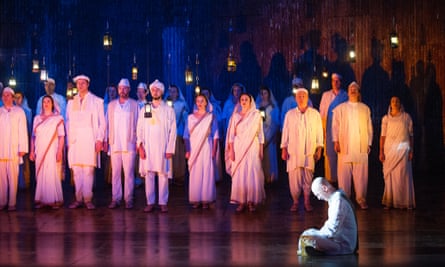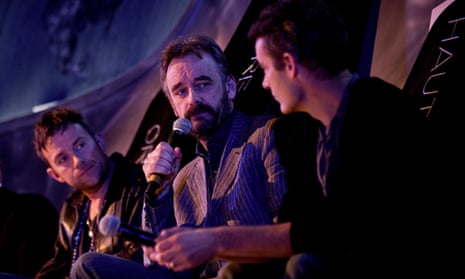With the departure of the music director Edward Gardner, the end of the 2014-15 season was always going to be a significant moment in the recent history of English National Opera. But the announcement that John Berry is leaving too makes it an even more decisive moment; when the new season opens at the Coliseum in September with a new production of Shostakovich’s Lady Macbeth of Mtsensk, the artistic guard at the Coliseum will have changed completely.
At first sight the timing of Berry’s departure is puzzling. Had he stepped down earlier in the year no one would have been too surprised. Then the company was still reeling from the swingeing funding cuts imposed on it by the Arts Council, and the financial management of the company was under intense scrutiny; the ENO chairman, Martyn Rose, had resigned, and his letter of resignation, which castigated Berry, had been pusillanimously leaked to the media. He was followed out of the door a few weeks later by the executive director, Henriette Götz, who had been recruited to stabilise the company financially. But having weathered all those storms, and with a new music director, Mark Wigglesworth, arriving for the new season, Berry was expected to carry on for another season at least.

Privately, though, he was frustrated by the constraints that the Arts Council’s 29% funding cut had imposed on his artistic plans and concerned that he might not be able to fulfil the plans for coming seasons he had already discussed with Wigglesworth. As an administrator who thrived on new ideas and on artistic risk-taking, Berry was never going to be content just making do and with serving up a safe diet of repertory revivals.
Berry was not the easiest administrator to work with, and as the whole unsavoury episode of Rose’s leaked letter shows, he has the unenviable knack of making enemies. But on stage, where it mattered most to ENO’s audiences, his record across the 10 years he was calling the shots was immensely impressive, and artistically at least during his tenure, the company came close to emulating the achievements of the company’s heyday during the so-called “powerhouse” years of the 1980s.
Not all Berry’s experiments have been a success – his insistence on inviting theatre directors to try their hand at staging opera has been only intermittently successful, for instance. But his real disappointment was surely that the substantial achievements of his tenure seemed to count for so little with the bean-counters at the Arts Council, who were all too willing to tolerate a succession of on-stage failures down the road at Covent Garden. Berry was never cut anything like the amount of slack that Kasper Holten seems to enjoy at the Royal Opera.
What happens at the Coliseum now, though, is much more difficult to predict. No incoming artistic director is going relish the prospect of having to make their mark under the current financial restraints on the company; whoever takes on the role is going to have to have patience, imagination and considerable diplomatic skills. And the next administration will surely also have to confront the whole question of where the company’s home should be. It’s undeniable that the Coliseum is simply too large and unwieldy a theatre to be a viable venue for many of its productions. A new medium-sized, purpose-built opera house would not only solve many of ENO’s problems, but would do far more for the richness of London’s musical life than yet another new concert hall, even one built on the whim of a star conductor.

